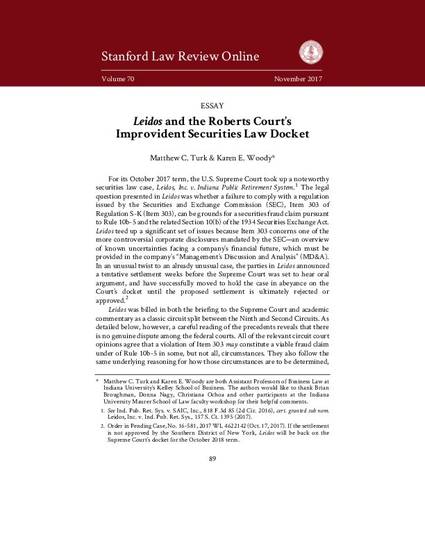
For its October 2017 term, the U.S. Supreme Court took up a noteworthy securities law case, Leidos, Inc. v. Indiana Public Retirement System. The legal question presented in Leidos was whether a failure to comply with a regulation issued by the Securities and Exchange Commission (SEC), Item 303 of Regulation S-K (Item 303), can be grounds for a securities fraud claim pursuant to Rule 10b-5 and the related Section 10(b) of the 1934 Securities Exchange Act. Leidos teed up a significant set of issues because Item 303 concerns one of the more controversial corporate disclosures mandated by the SEC—an overview of known uncertainties facing a company’s financial future, which must be provided in the company’s “Management’s Discussion and Analysis” (MD&A). In an unusual twist to an already unusual case, the parties in Leidos announced a tentative settlement weeks before the Supreme Court was set to hear oral argument, and have successfully moved to hold the case in abeyance on the Court’s docket until the proposed settlement is ultimately rejected or approved.
